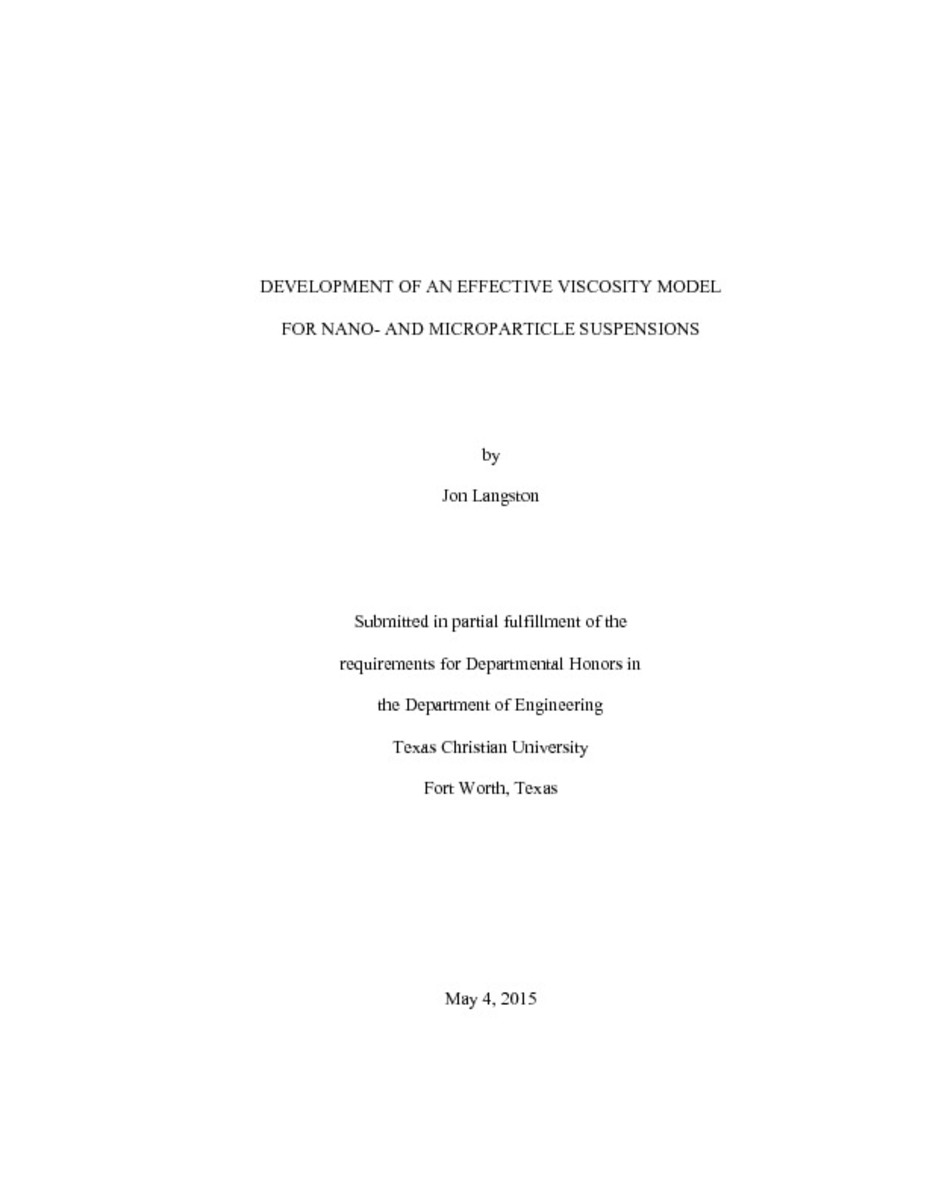Development of an Effective Viscosity Model for Nano- and Microparticle SuspensionsShow full item record
| Title | Development of an Effective Viscosity Model for Nano- and Microparticle Suspensions |
|---|---|
| Author | Langston, Jon |
| Date | 2015 |
| Abstract | The purpose of this project was to develop a mathematical model relating the effective viscosity of a microparticulate suspension and the viscosity of the suspension's base fluid as a function of volumetric ratio and temperature. This was done by measuring the viscosity of water-kaolinite mixtures of 1%, 2%, 3%, and 5% volumetric ratio across temperatures ranging from 15 to 80°C (288 to 353 K) using capillary viscometers. The raw data was then reduced in order to determine coefficients for a correlation modeled after the Einstein expression for effective viscosity. The resulting coefficients exhibited an exponential decay as temperature increased, and increased viscosity at higher concentrations. Utilizing these coefficients, an effective viscosity model as a function of temperature was developed for each of the four concentration levels. The predicted values of effective viscosity from these models agree with the measured viscosity values within 3.5% across all temperatures measured. |
| Link | https://repository.tcu.edu/handle/116099117/10373 |
| Department | Engineering |
| Advisor | Michaelides, Efatathios |
| Additional Date(s) | 2015-05-01 |
Files in this item
This item appears in the following Collection(s)
- Undergraduate Honors Papers [1362]
© TCU Library 2015 | Contact Special Collections |
HTML Sitemap



